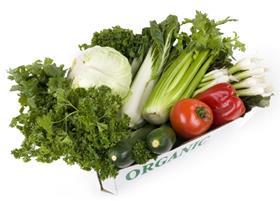
Pesticides on fruit and vegetables could be damaging sperm counts, new research has suggested.
The team from Harvard University in the USA suggested that men should consider going organic if they want to have children, as, although their research wasn't conclusive, they believe produce containing high levels of pesticides may be having a damaging impact on semen quality and quantity.
The study found that men who ate at least one and half portions of fruit and vegetables containing high levels of pesticide residue had sperm counts which were 49 per cent lower than usual. Their semen quality was also reduced by 32 per cent.
Those who ate large quantities of fruit and vegetables with little or no residue saw their sperm quality increase by 37 per cent.
The researchers stated: 'These findings should not discourage the consumption of fruit and vegetables in general.In fact, we found that total intake of fruit and vegetables was completely unrelated to semen quality.
The team analysed 338 semen samples from 155 men aged between 18 and 55 attending a fertility centre between 2007 and 2012.
The men's diet was assessed by a questionnaire, and they were asked how often, on average, they had consumed how many portions of fruit and vegetables, using standard portion sizes such as one apple, or half an avocado.
The study took account of usual practice in food preparation, such as whether the fruit and vegetables had been peeled and washed.
The researchers divided the men into four groups, ranging from those who ate the greatest amount of fruit and vegetables high in pesticides residue (1.5 servings or more a day), to those who ate the least amount (less than half a serving a day).
They also looked at men who ate fruit and vegetables with low-to-moderate pesticide residues.
The group of men with the highest intake of pesticide-heavy fruit and vegetables had an average total sperm count of 86 million sperm per ejaculate compared to men eating the least, who had an average of 171 million sperm per ejaculate - a 49 per cent reduction.
The research was published in the journal Human Reproduction.






No comments yet